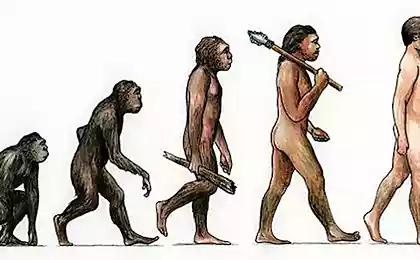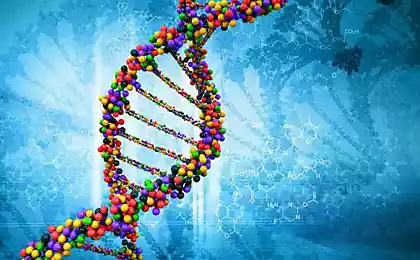192
Emergence: The mystery of the whole that is greater than the sum of the parts
845.46
What is meant by the idea of emergence? Long before scientists and philosophers introduced the word into the academic lexicon, great minds of the past debated whether the whole could have properties that were not reducible to the sum of its parts. Ancient Greek philosophers, Muslim scientists of the Golden Age, and European Renaissance naturalists have tried to unravel the paradox: why does the interaction of individual components produce something new that did not exist before?
Today, thanks to the development of a systematic approach in science, “emergence” has become one of the key concepts that help explain how life arises from the collection of atoms, how complex cultural patterns are formed at the level of human communities, and why global ecosystems can remain stable despite internal contradictions. But the essence of this idea has a much longer history, starting with philosophical discussions about the foundations of being and ending with modern interdisciplinary science of complex systems.
Centuries of debate over emergence now largely determine our understanding of the evolution of living organisms, the activities of human society and even the development of artificial intelligence. In this article, we will explore why the concept of “emerging properties” is so important to science and culture, how it has evolved historically, and what aspects of modern thinking are based on the idea that the whole can be more than the sum of its constituents.
Main part
Philosophical Roots of Emergence
The origins of the concept of emergence can be found already in Aristotle, when he said that “the whole is greater than the sum of parts”. Later, philosophers of different eras tried to explain this phenomenon. There were teachings on form, substance, "entelechia" - in each of these treatises there is a grain of thought about special, non-obvious qualities that arise only with a certain combination of elements.
In the Middle Ages, prominent thinkers pondered how “immaterial” qualities such as mind and consciousness could emerge from “material” nature. Later, the idea continued to develop in the works of Descartes, Spinoza, Leibniz and many others, forming the theoretical foundation for the emergence of a modern system of views on the nature of consciousness and the complex mechanisms of the world.

Transition from philosophy to the science of complex systems
The rapid development of natural sciences in the XVIII-XIX centuries brought an experimental approach to the discussion of emergence. Scientists began to notice effects in biology, physics, and chemistry that could not be explained simply by summarizing the properties of individual elements. For example, the water molecule H2O is very different in its properties from each of its components (hydrogen and oxygen) separately. This “new quality” effect is an example of emergence.
In the twentieth century, thanks to the development of cybernetics, systems analysis and synergetics, the concept of emergence became one of the cornerstones of the scientific worldview. Many natural, social, and artificial systems work as more than a collection of their parts: neural networks in the brain, financial markets, collective animal behavior (fish, ant colonies), and so on. Due to self-organization, feedback and nonlinear interactions, complex structures arise that you will not find if you look at the system only from the bottom up.
Basic Principles of Emergence
Emergence in biology
One of the key areas where the idea of emergence is particularly clear is biology. Starting from a cell that is surprisingly complex in itself, scientists are investigating how a billion cells fold into a single, multiorganic organism capable of complex activity and adaptation. Genetic processes, cellular signals, and the external environment are all woven into a thin web of interactions.
As we move from organisms to ecosystems, an even more dramatic picture emerges. The joint life of animals, plants, microorganisms forms the circulation of substances and energy, which can maintain a balance called homeostasis for a long time. From an ecological point of view, emergence explains how complex interactions ensure the self-regulation of the system, even though each individual being is guided by its own survival program.
The role of emergence in the development of society and culture
If you look at sociology and anthropology, you can see that human society is a huge network of individual “agents” with their interests, values and abilities. But history shows that cultures, economies, and political systems are capable of acquiring characteristics that are not apparent in the set of personalities of individuals. For example, art and science as forms of collective creativity produce ideas and tools that cannot be reduced to the contributions of each scientist or artist individually.
An example of the development of the Internet: the global network has evolved from a small project of data exchange into a powerful communication, economic and cultural layer. Here, each user is a small element of the system, but the total impact leads to effects that were difficult to predict initially. Social networks, cryptocurrencies, crowdsourcing initiatives are manifestations of emergent processes in cyberspace, where new structures of power, influence, cooperation and even antagonism are being formed from the bottom up.

The practical value of the concept
Why is it important for us to understand emergent properties? First, it provides the key to predicting the behavior of complex systems, from weather and economic markets to artificial intelligence. Second, it suggests that rigid control is not always effective: in some cases, the system is capable of self-organization, and our attempts to control each element can lead to the opposite result.
Today, philosophers, scientists, and engineers speak of emergent design of social institutions, in which the state or corporate structure encourages self-organization and interaction rather than trying to impose linear schemes. This approach helps to quickly adapt to a rapidly changing world and effectively use the “voice from below”.
Critical views and disputes
Despite the success of the ideas of emergence, the debate around it continues. Skeptics point out that it is often a convenient metaphor rather than a rigorous scientific principle. Where is the boundary between the new quality and the complex but deterministic behavior of the system? Some believe that deep analysis and computational resources are enough to reduce everything to the basic laws of physics, while others insist that the emergence of consciousness, creativity or morality cannot be explained mechanically.
Nevertheless, the very fact of such discussions suggests that emergence is not just a buzzword, but an important platform for scientific dialogue. Such discussions stimulate the development of new methodologies and interdisciplinary research, where physicists, biologists, sociologists and philosophers come together to understand why the complex world so often surprises us with effects that cannot be predicted by looking only at “building material”.
Conclusion
Emergence permeates many scientific and philosophical trends, becoming one of the key tools for understanding living and inanimate systems. Starting with the abstract reasoning of ancient thinkers, the concept gradually acquired a solid experimental basis and played a significant role in the formation of the modern picture of the world.
Whether it is the behavior of ecosystems, the formation of human communities, or the development of artificial intelligence, the idea of emergence reminds us that certain qualities arise only in the complex interweaving of multiple connections and interactions, and cannot be reduced to the properties of individual components. In this sense, emergence is not just a scientific concept, but a kind of metaphor for describing the amazing and continuous processes of self-organization that we observe in the universe, nature, society and, of course, in man himself.
Conversations begun centuries ago about the “whole and parts” continue today, inspiring us to find answers about the nature of consciousness, the sources of innovation, and the ways people and the world can more harmoniously coexist. And as the world continues to become more complex, understanding emergence becomes an increasingly important reference point for new discoveries and interdisciplinary collaboration.
What is meant by the idea of emergence? Long before scientists and philosophers introduced the word into the academic lexicon, great minds of the past debated whether the whole could have properties that were not reducible to the sum of its parts. Ancient Greek philosophers, Muslim scientists of the Golden Age, and European Renaissance naturalists have tried to unravel the paradox: why does the interaction of individual components produce something new that did not exist before?
Today, thanks to the development of a systematic approach in science, “emergence” has become one of the key concepts that help explain how life arises from the collection of atoms, how complex cultural patterns are formed at the level of human communities, and why global ecosystems can remain stable despite internal contradictions. But the essence of this idea has a much longer history, starting with philosophical discussions about the foundations of being and ending with modern interdisciplinary science of complex systems.
Centuries of debate over emergence now largely determine our understanding of the evolution of living organisms, the activities of human society and even the development of artificial intelligence. In this article, we will explore why the concept of “emerging properties” is so important to science and culture, how it has evolved historically, and what aspects of modern thinking are based on the idea that the whole can be more than the sum of its constituents.
Main part
Philosophical Roots of Emergence
The origins of the concept of emergence can be found already in Aristotle, when he said that “the whole is greater than the sum of parts”. Later, philosophers of different eras tried to explain this phenomenon. There were teachings on form, substance, "entelechia" - in each of these treatises there is a grain of thought about special, non-obvious qualities that arise only with a certain combination of elements.
In the Middle Ages, prominent thinkers pondered how “immaterial” qualities such as mind and consciousness could emerge from “material” nature. Later, the idea continued to develop in the works of Descartes, Spinoza, Leibniz and many others, forming the theoretical foundation for the emergence of a modern system of views on the nature of consciousness and the complex mechanisms of the world.

Transition from philosophy to the science of complex systems
The rapid development of natural sciences in the XVIII-XIX centuries brought an experimental approach to the discussion of emergence. Scientists began to notice effects in biology, physics, and chemistry that could not be explained simply by summarizing the properties of individual elements. For example, the water molecule H2O is very different in its properties from each of its components (hydrogen and oxygen) separately. This “new quality” effect is an example of emergence.
In the twentieth century, thanks to the development of cybernetics, systems analysis and synergetics, the concept of emergence became one of the cornerstones of the scientific worldview. Many natural, social, and artificial systems work as more than a collection of their parts: neural networks in the brain, financial markets, collective animal behavior (fish, ant colonies), and so on. Due to self-organization, feedback and nonlinear interactions, complex structures arise that you will not find if you look at the system only from the bottom up.
Basic Principles of Emergence
- Nonlinearity of processes: In complex systems, the result of the interaction of elements is not just added up, but transformed. The very “butterfly effect” where a small change can lead to radical consequences is a prime example of this nonlinearity.
- Self-organization: Elements can be “coordinated” without external guidance. In biology, this is seen in the mechanisms of cell differentiation, or the formation of spiral galaxies in the universe.
- New levels of hierarchy: When emergent properties arise, the system can “rise” to a higher level of organization (organism from cells, society from individuals), on which new laws and principles operate.
Emergence in biology
One of the key areas where the idea of emergence is particularly clear is biology. Starting from a cell that is surprisingly complex in itself, scientists are investigating how a billion cells fold into a single, multiorganic organism capable of complex activity and adaptation. Genetic processes, cellular signals, and the external environment are all woven into a thin web of interactions.
As we move from organisms to ecosystems, an even more dramatic picture emerges. The joint life of animals, plants, microorganisms forms the circulation of substances and energy, which can maintain a balance called homeostasis for a long time. From an ecological point of view, emergence explains how complex interactions ensure the self-regulation of the system, even though each individual being is guided by its own survival program.
The role of emergence in the development of society and culture
If you look at sociology and anthropology, you can see that human society is a huge network of individual “agents” with their interests, values and abilities. But history shows that cultures, economies, and political systems are capable of acquiring characteristics that are not apparent in the set of personalities of individuals. For example, art and science as forms of collective creativity produce ideas and tools that cannot be reduced to the contributions of each scientist or artist individually.
An example of the development of the Internet: the global network has evolved from a small project of data exchange into a powerful communication, economic and cultural layer. Here, each user is a small element of the system, but the total impact leads to effects that were difficult to predict initially. Social networks, cryptocurrencies, crowdsourcing initiatives are manifestations of emergent processes in cyberspace, where new structures of power, influence, cooperation and even antagonism are being formed from the bottom up.

The practical value of the concept
Why is it important for us to understand emergent properties? First, it provides the key to predicting the behavior of complex systems, from weather and economic markets to artificial intelligence. Second, it suggests that rigid control is not always effective: in some cases, the system is capable of self-organization, and our attempts to control each element can lead to the opposite result.
Today, philosophers, scientists, and engineers speak of emergent design of social institutions, in which the state or corporate structure encourages self-organization and interaction rather than trying to impose linear schemes. This approach helps to quickly adapt to a rapidly changing world and effectively use the “voice from below”.
Critical views and disputes
Despite the success of the ideas of emergence, the debate around it continues. Skeptics point out that it is often a convenient metaphor rather than a rigorous scientific principle. Where is the boundary between the new quality and the complex but deterministic behavior of the system? Some believe that deep analysis and computational resources are enough to reduce everything to the basic laws of physics, while others insist that the emergence of consciousness, creativity or morality cannot be explained mechanically.
Nevertheless, the very fact of such discussions suggests that emergence is not just a buzzword, but an important platform for scientific dialogue. Such discussions stimulate the development of new methodologies and interdisciplinary research, where physicists, biologists, sociologists and philosophers come together to understand why the complex world so often surprises us with effects that cannot be predicted by looking only at “building material”.
Conclusion
Emergence permeates many scientific and philosophical trends, becoming one of the key tools for understanding living and inanimate systems. Starting with the abstract reasoning of ancient thinkers, the concept gradually acquired a solid experimental basis and played a significant role in the formation of the modern picture of the world.
Whether it is the behavior of ecosystems, the formation of human communities, or the development of artificial intelligence, the idea of emergence reminds us that certain qualities arise only in the complex interweaving of multiple connections and interactions, and cannot be reduced to the properties of individual components. In this sense, emergence is not just a scientific concept, but a kind of metaphor for describing the amazing and continuous processes of self-organization that we observe in the universe, nature, society and, of course, in man himself.
Conversations begun centuries ago about the “whole and parts” continue today, inspiring us to find answers about the nature of consciousness, the sources of innovation, and the ways people and the world can more harmoniously coexist. And as the world continues to become more complex, understanding emergence becomes an increasingly important reference point for new discoveries and interdisciplinary collaboration.
7 Unobvious Reasons Why You Stay In Unhappy Relationships (and How to Fix It)
5 Ayurvedic Ways to Overclock Metabolism























